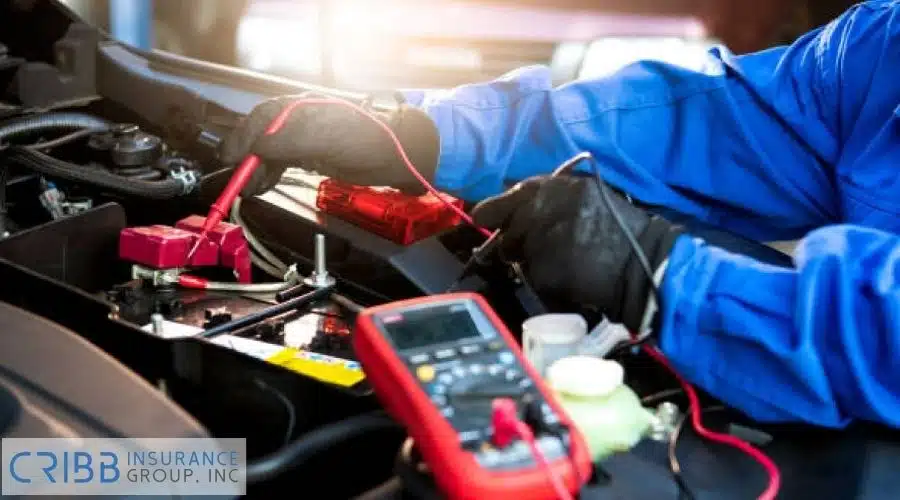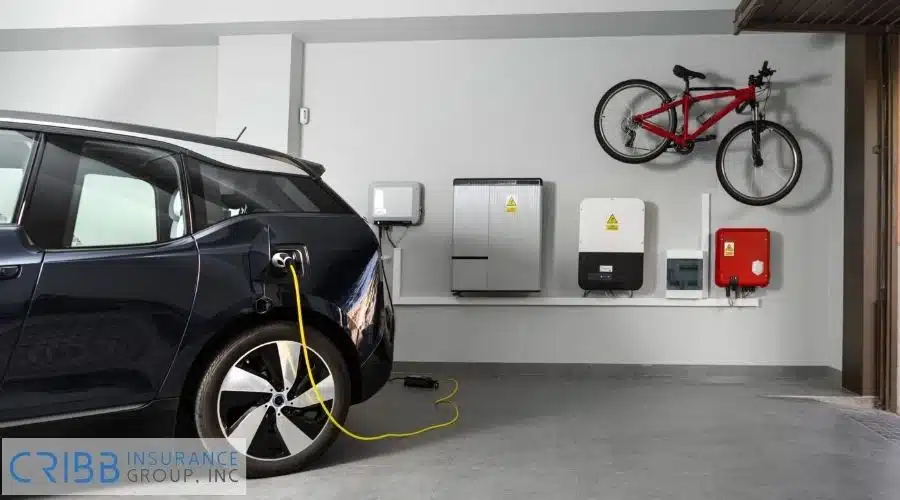Electric car insurance is different from traditional policies in several ways, and it’s important to understand how those differences affect your coverage and costs. Whether you’re already driving an EV or thinking about buying one, knowing how auto insurance for electric cars works can help you make smart decisions and potentially save money.

Why Electric Car Insurance Can Cost More
Compared to gas-powered cars, electric vehicles (EVs) often cost more to insure. This can surprise some drivers, but there are clear reasons behind it. One of the biggest reasons is the cost of repair. EVs have expensive battery systems and advanced technology that can cost more to fix or replace. Also, not all repair shops have the tools or training needed for EV repairs, which can limit your options and increase costs.
In some cases, the value of the car is higher, especially if it’s a new model. Since insurance is partly based on how much your car is worth, this can push up your premiums. Also, parts for EVs can be harder to find, and that can slow down repairs and increase costs.
However, that doesn’t mean EV insurance is always expensive. Some insurers offer discounts for EV drivers, especially if you drive safely or bundle your policies. Comparing rates is key, and talking to a local agent who understands EV coverage can make a big difference.
Coverage Options for EV Owners
Electric car owners can get many of the same types of coverage as other drivers. But there are a few things to pay extra attention to. Most policies include basic coverage like liability, collision, and comprehensive. But with EVs, it’s smart to ask about:
- Battery Coverage: Some insurers treat batteries as part of the vehicle, while others may have separate terms. Batteries are one of the most expensive parts of an EV.
- Charging Equipment: If you have a home charging station, you might need to add coverage to protect it.
- Roadside Assistance: EVs can run out of battery just like gas cars run out of fuel. Make sure your plan includes towing to the nearest charging station.
You should also check if your policy covers damages from power surges, especially if you charge your car at home. A small surge could damage the battery or electronics. The more details you ask about upfront, the fewer surprises you’ll face later.

Ways to Save on Electric Car Insurance
Even though insurance can be higher for EVs, there are still many ways to lower your costs. Here are some helpful tips:
- Bundle Your Policies: Combine auto and home insurance for a discount.
- Ask About EV Discounts: Some companies offer green vehicle or eco-friendly driver discounts.
- Drive Safely: A clean driving record always helps keep your car insurance rates low.
- Shop Around: Get quotes from at least three providers who understand electric cars.
- Choose a Higher Deductible: This can lower your monthly premium, but make sure you can afford the out-of-pocket cost if there’s an accident.
Also, let your insurer know if your EV has any special safety features, like automatic braking or lane assist. These can sometimes qualify you for additional savings.
Choosing the Right Insurance Company
Not every insurance provider has the same experience with electric cars. Some national companies may offer special EV programs, but working with a local agency has its advantages. When choosing an insurer, look for:
- Experience with EVs
- Clear policy terms about battery and charging equipment
- Affordable premiums with strong coverage
- Good customer service and claims process
A local agency can help you compare plans, understand your options, and find the right balance of cost and coverage. Plus, they can answer your questions and make sure you’re fully protected.

Secure the Best Electric Car Insurance for Your EV Today
Electric vehicles are a great choice for the future, but they do come with unique insurance needs. Understanding electric car insurance and how it compares to auto insurance for electric cars powered by gas can help you make informed decisions, save money, and protect your investment.
Cribb Insurance Group Inc specializes in policies that fit EV owners’ needs and budgets. Call us to get personalized auto insurance in Bentonville or learn more about the right coverage for your electric vehicle.
Frequently Asked Questions
Does electric car insurance cover charging cables?
Yes, some policies may include coverage for charging cables if they are damaged or stolen. It’s important to ask your insurer if accessories like cables and adapters are included in your comprehensive plan.
Is electric car insurance required by law?
Yes, electric vehicles must have the same minimum insurance as gas-powered cars, including liability coverage, to legally drive on public roads in most states.
Can I insure an electric car for business use?
Yes, electric vehicles can be insured for business use. You’ll need a commercial auto policy that matches your vehicle’s usage and includes adequate liability protection.
Do I need special insurance if I lease an electric vehicle?
If you lease an EV, the leasing company may require specific insurance limits or gap coverage. Always check their requirements and share them with your insurance agent.
Does electric car insurance cover battery fires?
Most comprehensive auto insurance policies cover battery fires, including those caused by malfunctions. Always confirm that your insurer covers this risk specifically for EVs.





